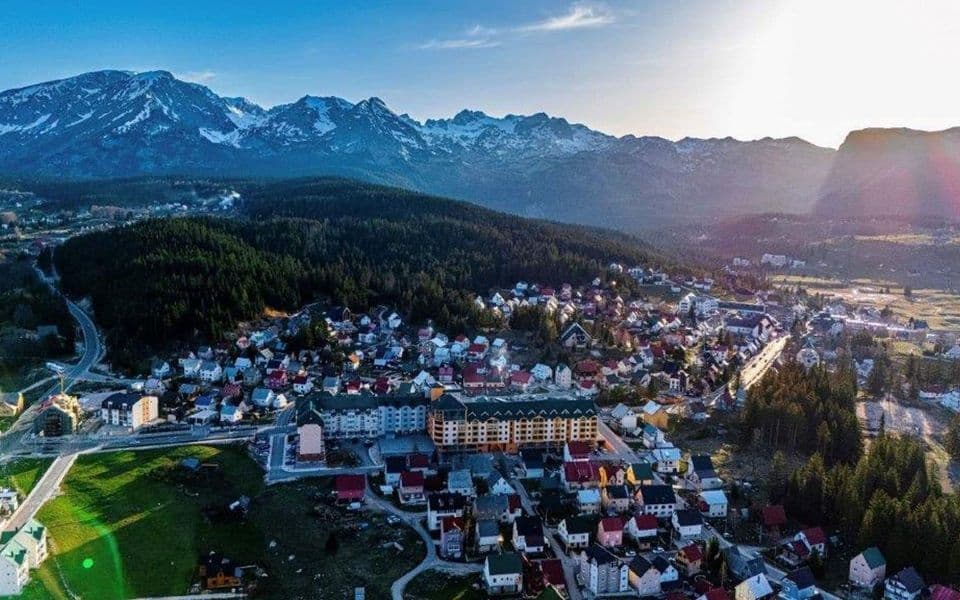Lifestyle
Gender Imbalance Hinders Women’s Empowerment in Žabljak

The small town of Žabljak in Montenegro is facing significant challenges regarding gender equality and women’s empowerment. With a population of 2,941, of which 1,447 are women, the representation of women in leadership roles remains inadequate. This imbalance highlights systemic barriers that hinder women’s full participation in both local governance and community life.
In Žabljak, women occupy only three out of nine leadership positions across various organizational units, representing just 33.33 percent. The local council, comprising 30 councilors, includes only seven women, or 23.33 percent, failing to meet the legal minimum requirement for gender representation. This lack of female representation in decision-making roles significantly impacts the community’s progress towards gender equality.
The situation is further complicated by the absence of essential services for women and families. Žabljak currently has no maternity hospital or counseling services for pregnant women and new mothers. Such gaps in healthcare infrastructure not only limit access to critical support but also reflect broader societal attitudes that marginalize women’s needs.
Despite the challenges in governance, women constitute a substantial majority of the workforce in educational institutions. They make up 65.78 percent of all employees in this sector, although only 75 percent hold the position of director. This discrepancy indicates that while women are prevalent in education, they still face barriers to attaining leadership roles.
Žabljak is divided into 12 local communities, each led by a man. This further emphasizes the lack of female leadership in local governance. The predominance of male leaders in community organizations underscores the entrenched stereotypes and prejudices that continue to impede progress toward gender equality.
Efforts to address these disparities are crucial for fostering an environment where women can thrive both in leadership roles and within their communities. The situation in Žabljak serves as a reminder of the ongoing struggle for gender equality in many parts of the world, highlighting the need for systemic changes that empower women and promote inclusive governance.
In conclusion, Žabljak’s gender imbalance presents significant obstacles to women’s empowerment. Addressing these issues will require concerted efforts from local authorities, community organizations, and residents to challenge stereotypes, improve representation, and create supportive environments for women. Only through such measures can the community hope to ensure equal opportunities for all its members.
-

 Entertainment3 months ago
Entertainment3 months agoAnn Ming Reflects on ITV’s ‘I Fought the Law’ Drama
-

 Entertainment4 months ago
Entertainment4 months agoKate Garraway Sells £2 Million Home Amid Financial Struggles
-

 Health3 months ago
Health3 months agoKatie Price Faces New Health Concerns After Cancer Symptoms Resurface
-

 Entertainment3 months ago
Entertainment3 months agoCoronation Street’s Carl Webster Faces Trouble with New Affairs
-

 Entertainment3 months ago
Entertainment3 months agoWhere is Tinder Swindler Simon Leviev? Latest Updates Revealed
-

 World2 weeks ago
World2 weeks agoBailey Announces Heartbreaking Split from Rebecca After Reunion
-

 Entertainment4 months ago
Entertainment4 months agoMarkiplier Addresses AI Controversy During Livestream Response
-

 Entertainment2 weeks ago
Entertainment2 weeks agoCoronation Street Fans React as Todd Faces Heartbreaking Choice
-

 Science1 month ago
Science1 month agoBrian Cox Addresses Claims of Alien Probe in 3I/ATLAS Discovery
-

 Health4 months ago
Health4 months agoCarol Vorderman Reflects on Health Scare and Family Support
-

 Entertainment4 months ago
Entertainment4 months agoKim Cattrall Posts Cryptic Message After HBO’s Sequel Cancellation
-

 Entertainment3 months ago
Entertainment3 months agoOlivia Attwood Opens Up About Fallout with Former Best Friend





















